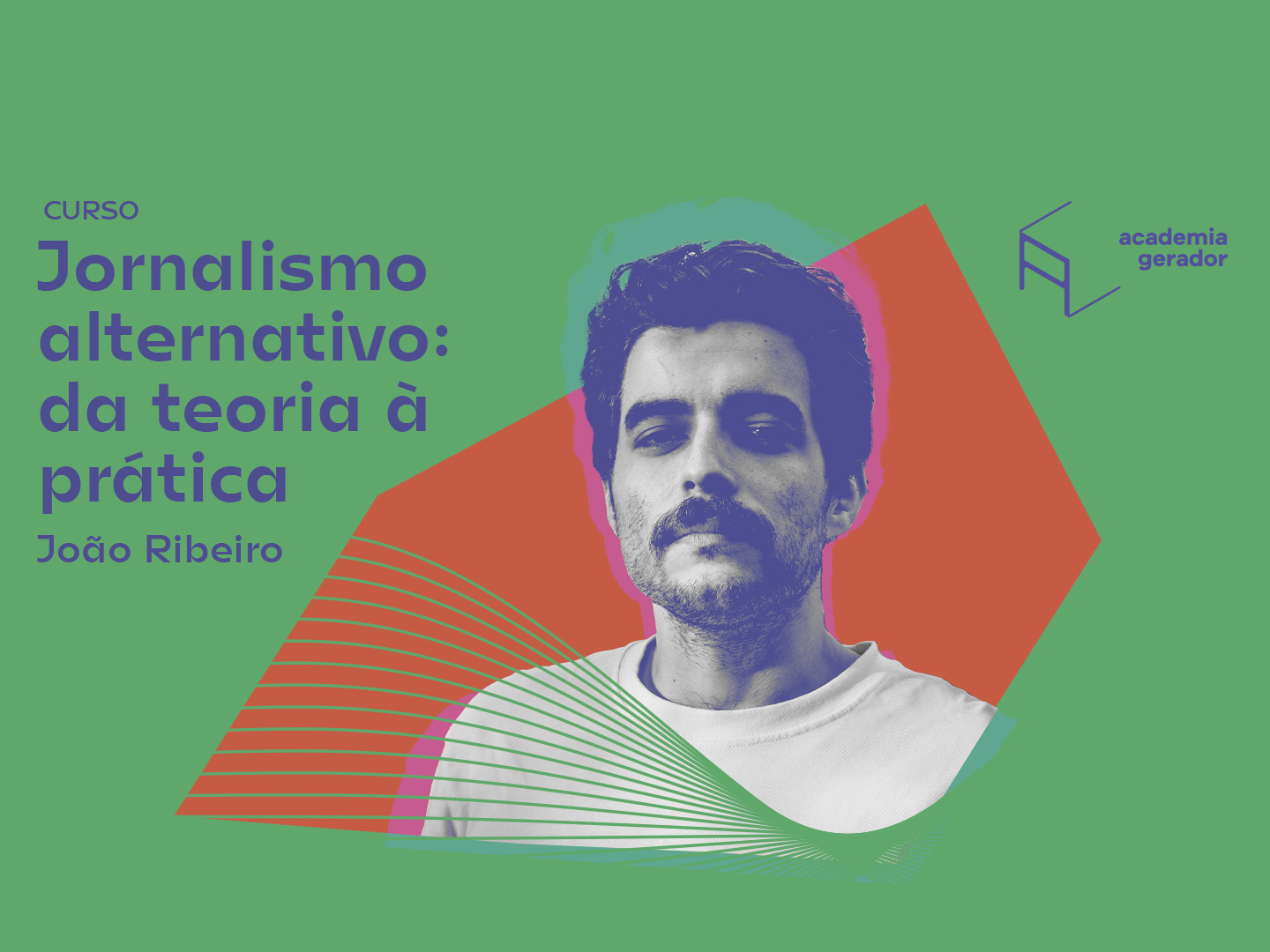In partnership with Academia Gerador, Shifter has organized a 25-hour online course in which he will share everything he knows about how to create an alternative and disruptive media outlet: lessons, tools and processes.

Based on more than eight years of practical experience, throughout the course we will share lessons, tools, processes and practices that are essential for alternative journalism and/or the creation of an innovative media outlet. The course will have nine classes, between April and June, and an approximate cost of €24/class.
Registration can be done here.
Course objectives
- Theoretically frame what alternative journalism is;
- Develop editorial sensitivity and thinking;
- Explore information gathering and text writing techniques;
- Develop literacy on digital and alternative media contingencies;
- Develop sensitivity to the audiovisual component of alternative journalism.
Class map
Class 1 | What is alternative journalism?
- Brief history of journalism;
- The current moment of journalism;
- What is mainstream vs alternative;
- Forms of Alternative Journalism (community, investigative, …).
Class 2 | The challenges of alternative journalism
- Global characterization of the media;
- Success stories in Portugal and around the world;
- Innovation vs Regulation;
- Citizen or amateur journalism.
Lesson 3 | From idea to editorial: understanding the purpose and the audience
- Why? Why create a media?
- Mission, vision, objectives, purposes to be defined;
- Audience definition;
- Content formats and approaches to journalism.
Lesson 4 | From idea to editorial: creating an editorial strategy
- Editorial management processes;
- Importance of Editing;
- Publishing as a brand product.
Lesson 5 | From plan to practice: structuring journalistic work and gathering information
- Content typologies;
- Direct and indirect methods of collecting information;
- New sources of information;
- OSINT – what is it?
Lesson 6 | From plan to practice: text writing and text editing techniques
- Principles of journalistic writing and the various formats;
- Storytelling – how to approach the story and adapt it to the environment;
- Unwritten narratives.
Lesson 7 | From publication to public: Illustration and New Formats
Development of a joint exercise, of a publication that could be read and made available to the public.
Lesson 8 | From publication to public: social networks, new media and monetization
- We came up with the idea: how do we give it legs to walk?
- Legal issues: copyright, investigation and translations.
Class 9 | Presentation of the work developed throughout the course
Each student will present the work developed in 15 minutes.
Course operation
- Videoconference (recording for consultation at the student's request);
- Required material: just a computer to attend online classes;
- Opening hours: Thursdays, from 7:00 pm to 9:30 pm;
- Days: April 14th, 21st and 28th; 5, 12, 19 and 26 May; June 9th and 16th.
Course evaluation
- Participation | The student's ability to intervene positively, valuing proactivity. Worth 20% of the final grade;
- Creativity | Ability to find original solutions to challenges. Worth 20% of the final grade;
- Proposed Exercises | Technical quality of the proposed intermediate challenges. Worth 30% of the final grade. Included here are the Editorial Exercise, the Article Collection and Structure Exercise and the Illustration Exercise – each worth 10%;
- Final project | Quality of the final work presented (creativity and completion of the project). Worth 30% of the final grade.
Registration and payment
Registration for the course can be done on the Generator Academy website. The nine classes cost approximately €24/class, making the total cost €215. Generator Partners have a fixed discount of €15.